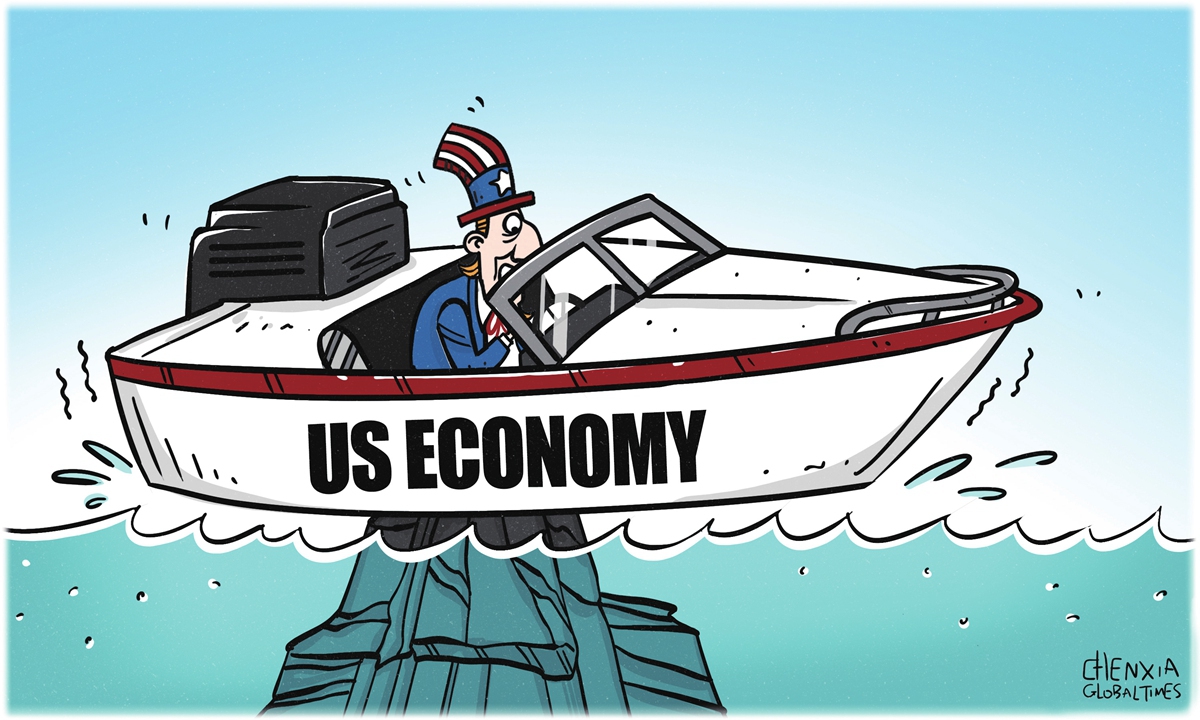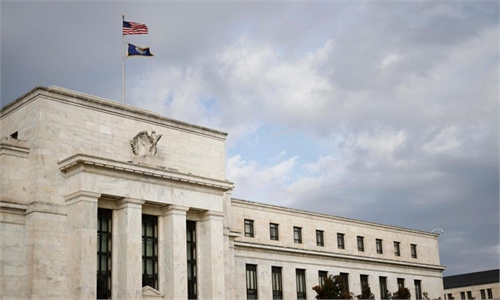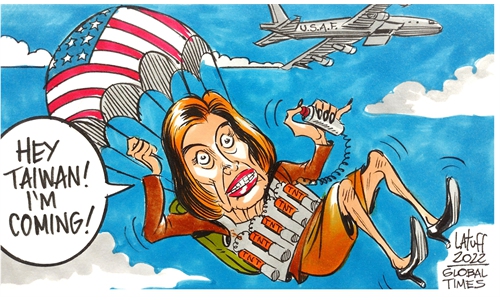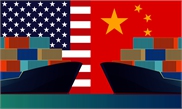
Illustration:Chen Xia/Global Times
US President Joe Biden announced on Thursday morning (US time) that a tentative deal had been struck to avert a national rail strike that could have brought devastating chaos to the country's supply chains amid already-high inflation.However, the intensified social and economic unrest could be seen as another sign that the US economy is hurtling toward a recession.
The reason why the Biden administration pushed so hard for the tentative deal was that the strike's consequences would be too much for the economy to bear.
If a deal hadn't been reached by the deadline, about 125,000 railway workers would have gone on strike starting Friday, which would have been the largest of its kind since 1992. According to US media reports, the rail work stoppage would have halted nearly one-third of the country's cargo shipments, exacerbating supply shortage of raw materials and products and leading to widespread stoppages in the manufacturing sector. And this would have been another disastrous blow for US supply chains that have already encountered various difficulties in recent years.
The risks lingering over the US supply chains also make the Biden administration's supply chain strategy look laughable. Over the past two years, with the excuse of building the so-called resilient, diverse, and secure supply chains, the Biden administration has been aggressive in roping in allies to build global supply chains that try hard to exclude China on the basis of "shared values."
In May, Biden announced the launch of the Indo-Pacific Economic Framework (IPEF), which is one of the most typical manifestations of Washington's attempt to create a small circle of supply chains and industrial chains in the Asia-Pacific region that is "decoupled" from China.
Yet, as the fragility of the US supply chains has been exposed time and again by such incidents as shortages of infant formula and the narrowly averted rail strike, Washington's geopolitical game looks increasingly farcical.
Indeed, the US economy is already in tatters, with all the problems intertwined like a ball of string. Inflation that hit a four-decade high in June unexpectedly rose in August, partly contributing to discontent among railway workers.
While the rail strike seems to have been averted this time, the US economy will continue to be plagued by inflation. No one knows what inflation-induced problems will await the country next time. The Biden administration's economic incompetence in taming inflation could already be enough to ruin the Democratic Party in the upcoming midterm elections.
Fundamentally speaking, it is not the first time the US supply chains have been exposed to certain danger, which is actually a reflection of the problems in the US economy. The heavily politicized economic policy is far from addressing domestic economic woes. With mounting signs that the US economy is heading for a recession, social unrest such as strike is bound to intensify, which, to a certain extent, could also light the fuse on a vicious economic cycle.
With the US economic strength in decline, unilateralism is no longer working. The US-dominated systems, like the financial system and the trading system, are now facing serious challenges of fragmentation. For example, the US Federal Reserve's aggressive policy of raising interest rates amid high inflation seems to have made the dollar the strongest currency against others at the moment. But an undeniable fact is that never in the past few decades have so many countries tried to replace other currencies alternative to the dollar in settlement of energy trade. And the root reason lies in the continuous decline of the US' own economic strength and the US' misguided approach of economic "decoupling" in the global supply chains.
There is historical precedent of the collapse of the global financial system as a result of the fall of a dominant power, which may be the greatest danger the world needs to keep vigilant at present.



